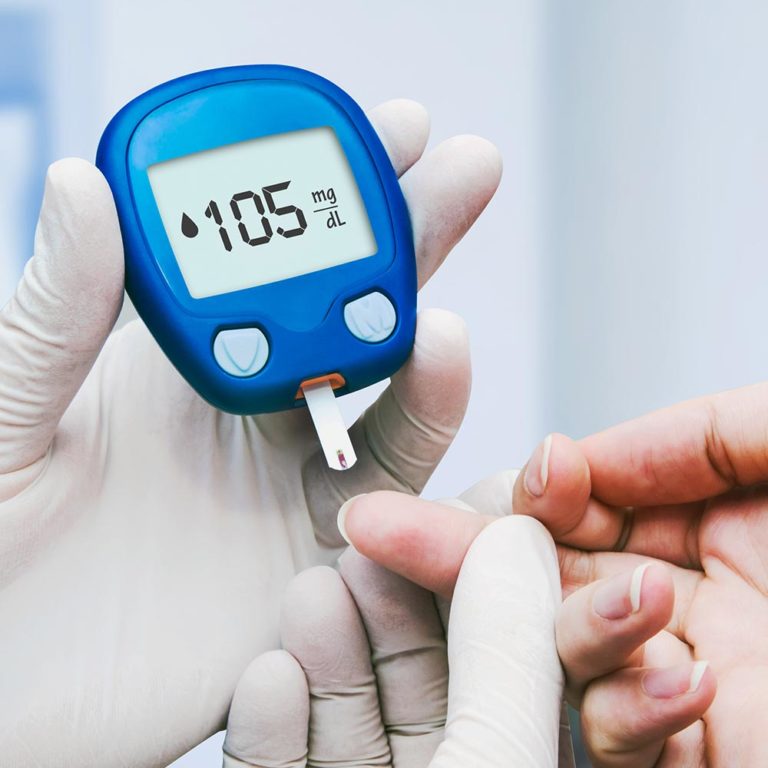Diabetes is a disease affecting your pancreas, which also affects the blood sugar and insulin levels in your body. Not only does diabetes affect your pancreas, but it also systemically affects your entire body.
Typically, people already know that diabetes increases your risk of heart disease and stroke; but, most people don’t know that diabetes can also affect your vision. Therefore, regular comprehensive eye exams are needed to detect these issues early on to keep your eyes healthy. There are several eye diseases that occur as a result of diabetes. Read on to find out more about these diseases and how they may affect your vision.
Diabetic retinopathy
The simplest way to explain diabetic retinopathy is that small blood vessels in your eyes begin to leak blood or yellow fluid into your eye. Early symptoms of diabetic retinopathy include having floaters, blurry vision, or distorted vision. If blurred vision or other symptoms don’t clear up with improved blood sugar control, oftentimes medicine and other procedures may restore vision. To catch the condition as early as possible, it’s important to get an annual comprehensive vision care exam along with monitoring and managing your blood sugar levels to normal. Diabetic retinopathy is the leading cause of blindness in diabetics.
High blood sugar levels can also temporarily cause blurred vision. It can happen right after a high carbohydrate meal or it can be a constant issue. Regardless, the treatment for correcting temporary blurry vision is to get blood sugar levels back to normal. It may take a few months for the blurriness to resolve itself, so patience and sticking to eating properly to manage blood sugar levels are a must.
Low blood sugar can also cause blurred vision and even double vision. While high blood sugar can change the shape of the lens in your eye, low blood sugar doesn’t and this particular vision issue can be corrected sooner by getting your blood sugar back to normal from a meal or snack.
Diabetic macular edema (DME)
Diabetic Macular Edema or more simply, DME, is a disease caused by the progression of diabetic retinopathy. People can get DME at any stage of diabetic retinopathy disease. The area in the back of the eye is called the macula and this area swells with fluid causing DME. The macula is responsible for our ability to drive, read, and other activities that require clear straight ahead vision.
Treatment for DME includes injecting anti-VEGF medicines into the eye. These drugs block a certain protein that causes blood vessels to grow. These drugs are designed to reduce fluid in your eye to restore vision. Diabetics still have to work at controlling their blood sugar levels to prevent a recurrence of DME in the future and to keep their vision healthy.
Cataract
Another vision problem that is often caused by diabetes is a cataract in one or both eyes. Cataracts are when the eye lens becomes cloudy from a protein in the lens that clumps together. Cataracts are not exclusively a condition of having diabetes, but people with diabetes are at a much higher risk of developing cataracts and developing cataracts at an earlier age.
There are certain ways people can get relief from the symptoms of having cataracts such as getting anti-glare sunglasses or stronger prescription glasses. The only way to get rid of cataracts altogether is to have eye surgery to remove the cloudy lens and replace it with an artificial lens. Cataracts don’t damage your eye, so surgery doesn’t have to be an immediate option, or at all, if you are able to manage the symptoms effectively.
Glaucoma
Pressure in your eye can cause glaucoma, a disease that damages the optic nerve. The optic nerve is a bundle of nerves that connects your eye to your brain. Glaucoma can lead to blindness. People with diabetes are twice as likely to develop glaucoma than others. Without treatment, peripheral vision is usually the first to go, followed by the rest of your vision. Early diagnosis of glaucoma is vitally important to get the proper treatment and prevent blindness.
One thing is clear, diabetes has an array of ways it can affect your vision. Proper care of yourself through management of diabetes and regular, thorough eye exams is the best way to prevent and get early treatment for diabetes-related eye diseases and keep your vision at its best.

